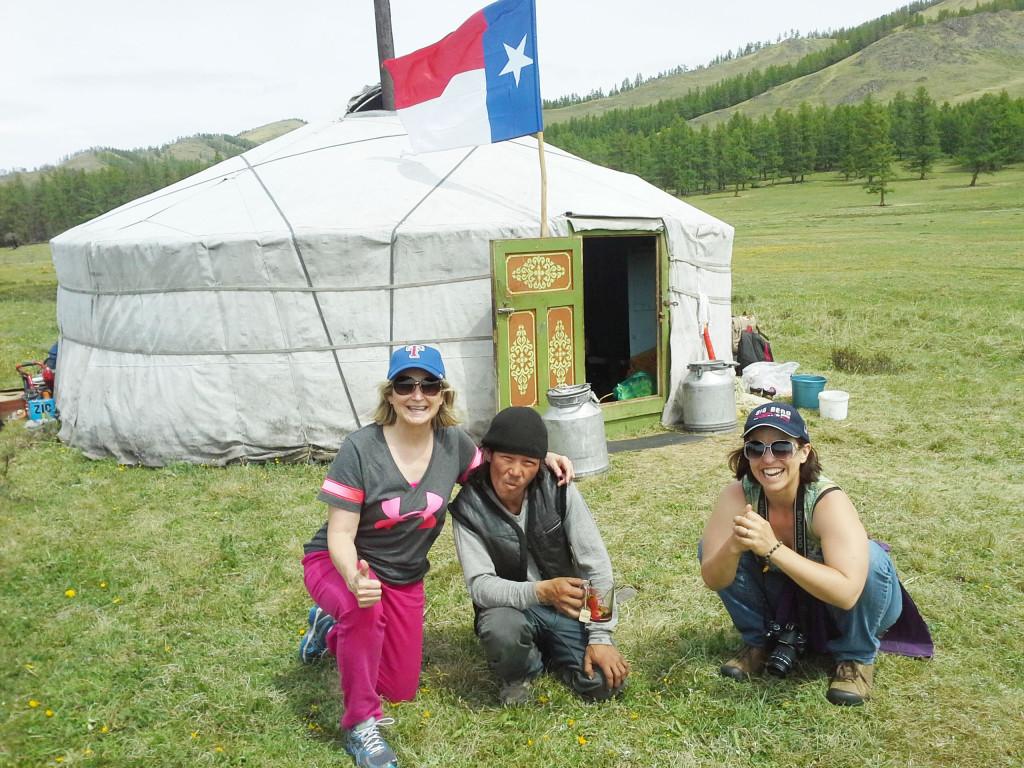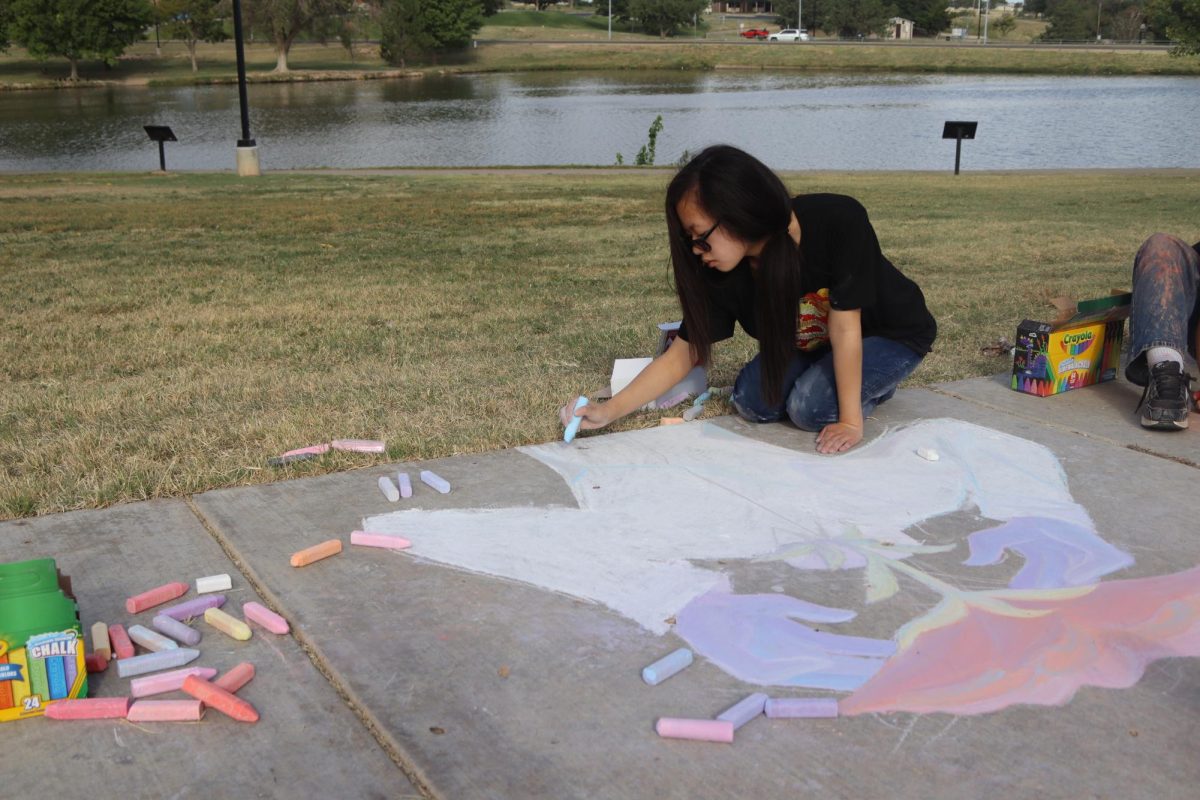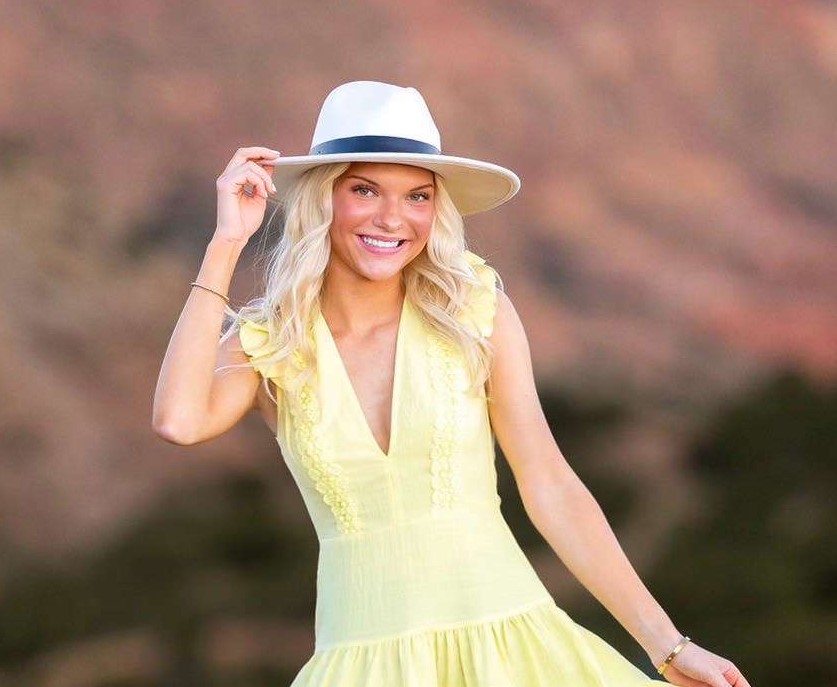The most ancient and deepest lake in the world, or the “Sacred Sea,” holds roughly 20 percent of the Earth’s freshwater. Its age and isolation have shaped one of the richest ecosystems in the world. Words are not adequate to describe it. As Geography teacher, Jan Weston, looks across the vast body of water, she sees the beauty of this lake is unparalleled. It is simply one adventure Siberia has in store for her.
Weston was selected to participate in a four-week study seminar this summer, along with four other Texas educators and eight UT graduate students and professors. The total 13 people studied the geography and anthropology of Siberia, took extensive excursions, attended cultural events, collected materials for the creation of curriculum units, and were required to take a crash-course in the Russian language for non-Russian speakers. Weston traveled from rural Tuva, through Russia to Lake Baikal, and on to the Buryat capital of Ulan-Ude.
“We experienced the unique cultural identities, languages and spiritual beliefs of the wildly diverse inhabitants of Russia’s distant regions,” Weston said. “The traveling process included in-country plane flights, off-road rides in Soviet-era jeeps, seemingly endless bus trips over the vast Russian steppe, and three overnight excursions on the Trans-Siberian Railway. I even rode a little Mongolian pony through a yak herd.”
Weston stayed at the Si-Xonash Yurt Camp with no running water or electricity.
“The people are semi-nomadic herders who definitely live off the beaten track,” Weston said. “The word ‘remote’ doesn’t do this camp’s location justice. Our hosts raise horses, sheep, yak, and cows. Mornings were quite chilly in our yurts, and I was always grateful to hear our little Tuvan man rattling around stoking the cold wood stove and bringing warmth to our space. One of my most memorable experiences is the homemade vodka they made us in the yurt ‘kitchen’ out of fermented yak milk.”
Weston said the natives were “most gracious” to her group.
“Looking back, I would not trade those memories,” Weston said. “I passed out Texas Ranger caps, and Texas A&M shirts to my hosts, and they even flew the Texas flag (albeit upside down) in our honor.”
Weston also visited an Old Believers village founded around 1764.
“Rebelling against Patriarch Nikon’s 1652 reforms of the Orthodox liturgy and ritual, the Old Believers fled or were exiled to Eastern Europe and then to Siberia,” Weston said. “In their isolated Siberian villages, such as Tarbagatay, these people were able to preserve their 17th century traditions, clothing, architecture, language and style of singing. During the 1930s, Stalin stole their land and cattle and drowned their priests.”
Due to the acts of Stalin, the Old Believers consider themselves Siberian instead of Russian.
“We spent a wonderful afternoon with these delightful people,” Weston said. “They prepared a feast for us and sang songs for our group. We visited their churches and homes. It was truly a highlight of the Siberian trip.”
In Siberia, water is one of the most predominate features with 53 thousand rivers and over one million lakes. The harsh winters keep encroaching populations at bay. Past czars have used Siberia as a place for political exiles, and Stalin introduced the gulag system to the region under his rule.
“[This was] certainly not an easy trip,” Weston said. “[It was] definitely not a glamorous one either. But in retrospect, it is a trip I am so thankful I had the opportunity to experience.”










